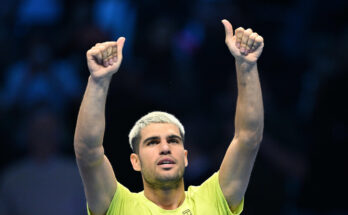Bern, 13 November (askanews) – The winners of the Balzan 2025 prize spoke in Bern. Four scholars who come from distant worlds, and for this reason manage to explain the same point: how knowledge is built in changing times. For this award, nominations come from scholars at the highest levels from all over the world, figures who have truly made achievements before and after in their fields of study.
Marta Cartabia, president of the General Balzan Prizes Committee: “In this forum, not only the research results of these great scholars are presented to a non-expert audience, but also their methods and way of life emerge. Often, behind these relevant scientific and academic results there is a very interesting life and this, in my opinion, is an aspect worth remembering.”
The process was opened by Carl June, a scientist who turns the body’s immune system into a therapy. Reprogrammed cells become a kind of “living medicine”: they look for tumors, recognize them and eliminate them. June says it simply: this revolution was born through collective work, and made possible by the courage of patients who agreed to try when there were no guarantees.
Christophe Salomon, French physicist. The subject is time – measuring it with a precision that is difficult to even imagine. In seventy years, atomic clocks have reduced the error to one second every 13.7 billion years: equal to the age of the universe. It seems like a technical curiosity, but these are the details that permeate our lives: GPS, banking networks, the internet. And in Bern, the city where Einstein developed his theory of relativity, Salomon reminds us that time is not the same for everyone. It changes on Earth, in orbit, depending on gravity.
The panel again changed tone with Rosalind Krauss, from Columbia University, a reference figure in the history of contemporary art, who proposed a journey into reading: from modernism to Mondrian’s grid, from Barthes to Proust and introduced the image of the “mandala”: nodes of meaning that are repeated in the text like constellations. Structuralism, he said, is a method that crosses language and culture, to show what lies beneath the surface of a story.
The final speech brought the discussion into politics. Josiah Ober studied Athenian democracy to understand our democracy. The question is simple and surprising: how did Athens remain a democracy surrounded by authoritarian powers? The answer lies in the quality of participation, speaker responsibility, and the circulation of knowledge. Rhetoric is not manipulation, but a severe public sphere, where bad speech can be very detrimental. Ober connects this story to current issues: the resilience of democracy, reconstruction after the crisis, the challenges of artificial intelligence.
Maria Cristina Messa, president of the Balzan Foundation “Gift”: “What struck me most today was their personality, their ability to understand and simplify very complex concepts, their love of research and their desire to bring their discoveries to the common good.” “Today we talk for example about artificial intelligence, how much it will change science, how much it will be an accelerator, but this concerns everyone, both physicists and doctors, humanists and historians.”
Four lessons, four languages, one direction: the points of contact between cells, atomic clocks, texts and democracy are always the same. The precision. Which at the Balzan Forum is also a form of responsibility.



